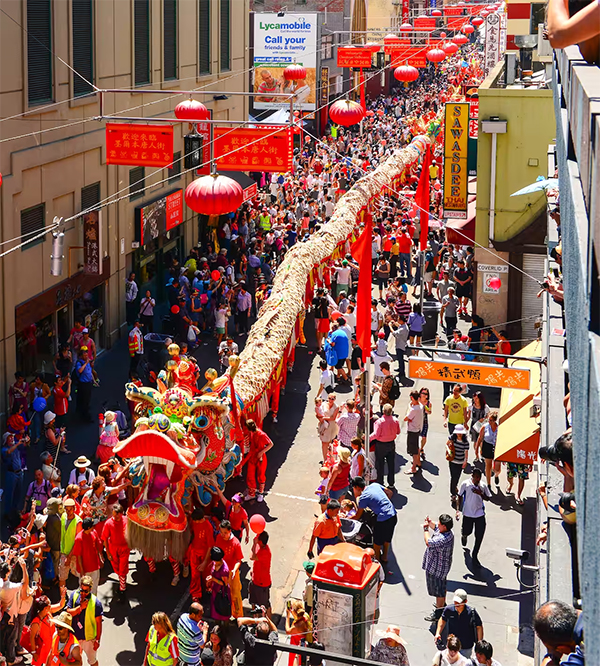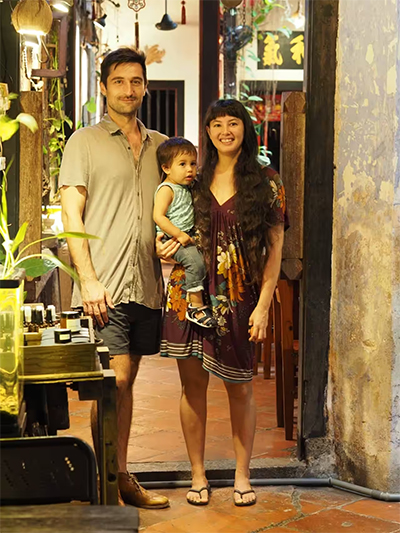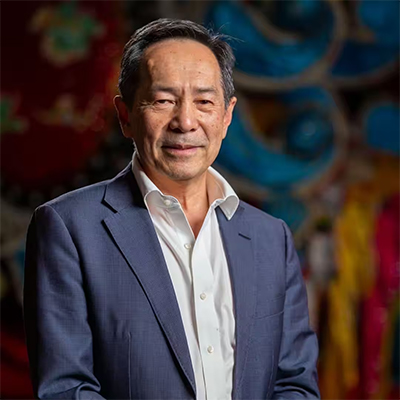Louisa is often asked by strangers what her heritage is. Source: SBS News.
Charis Chang, You’ll never guess where Louisa is really from — and she’s not alone, SBS News, 21 January 2023
Family histories and cultures are becoming more complicated in Australia and there are calls to improve how we properly capture people’s identities.
When Louisa was a young bartender it sometimes felt like a fun game for customers to try to guess her heritage.
“I have gotten totally different ones; people ask if I’m like French or Spanish,” she says.
“Nearly everybody I meet will at some point ask me about my heritage.”
“I find it really strange that people even ask me because, to me, white Australians, non-Indigenous Australians, are generally quite multicultural, so it’s bizarre to me.”

The 32-year-old, who lives in Melbourne, says she still gets questioned about her background regularly.
On paper, Louisa was born in Australia and speaks no other language than English, so the most recent Census (taken in 2021 and released last year) would have categorised her as being among 17 million other Australian-born citizens.
Only a question asking about her ancestry may have hinted at her cultural identity, which suggests respondents use their parents and grandparents as a guide. But Louisa’s parents were also born in Australia.
Louisa isn’t French or Spanish like her former customers thought — she’s actually sixth-generation Chinese.
Her surname is Wang and every year since she can remember she has attended Melbourne’s Chinese New Year parade, participating in it as a lion dancer when she was younger.
Her family has been connected with the parade since the 1980s but their history in Australia dates back even further, to the 1830s.

And when Louisa’s family gathers for Lunar New Year dinner, the ancestry each of them brings with them to the table extends well beyond Chinese; her mother is of English, Jewish and Polish background and her partner is Italian.
Louisa’s Chinese heritage stems from her father, who is ethnically Chinese but was born in Australia and does not speak Chinese. Older generations of his family married partners born in China, helping them to maintain a cultural and ethnic link.
Louisa says despite her not looking ‘Chinese’, her heritage is important to her and she likes to celebrate it at this time of the year.
“Mum said she used to take me to the Chinese New Year parades when I was a baby … It’s so exciting for me, I love it, I think the lion dances are amazing, they are so inspiring.”
Louisa also embraces Chinese superstitions around good luck symbols, is proud that she can make dumplings from scratch, and craves rice porridge when she’s sick. Her culture is something she also hopes to pass on to her son Ennio, who inherited her surname as his middle name,.
“Hopefully Ennio will be the dragon [in the parade] eventually,” she says.
Another reason Louisa feels connected to her Chinese heritage is through the work of her father Mark Wang, the chief executive officer of the Museum of Chinese Australian History in Melbourne. In Mark’s case, he learned a lot about Chinese ‘thinking’ from his Shanghai-born father before he died.

I don’t know whether I am Chinese from the inside, or whether people have made me Chinese.– Mark Wang

